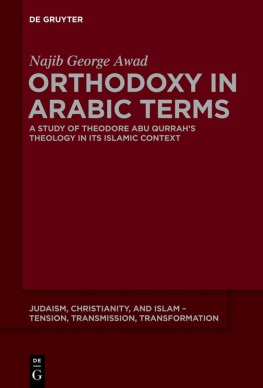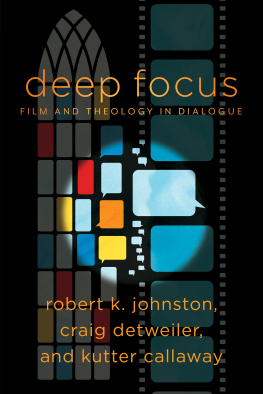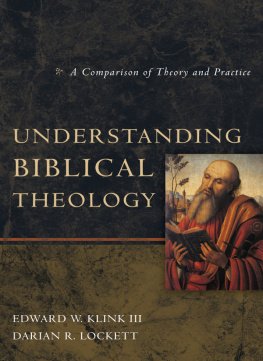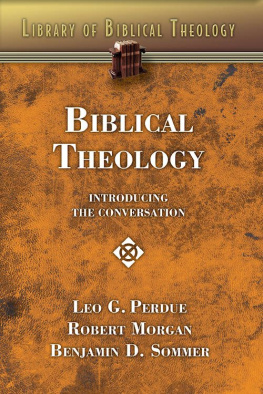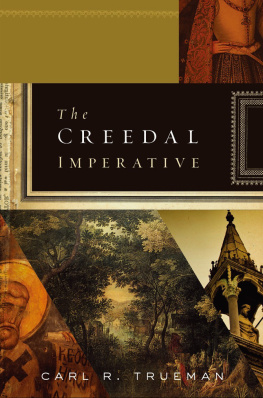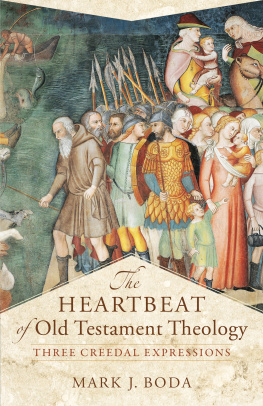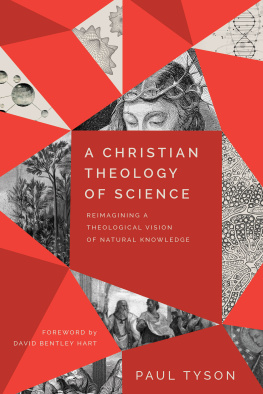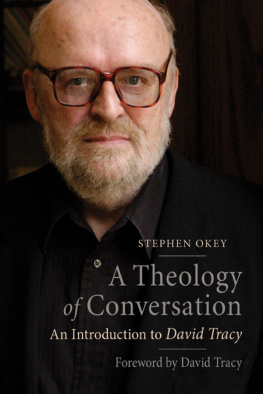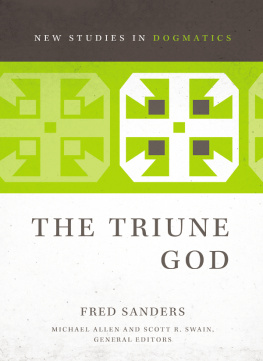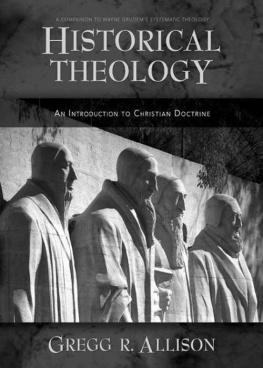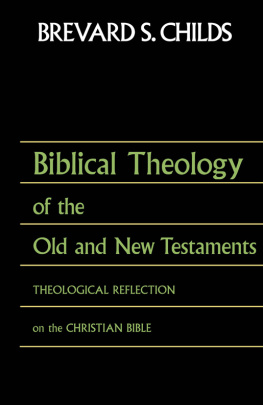GCRR Press
An imprint of the Global Center for Religious Research
1312 17th Street Suite 549
Denver, CO 80202
www.gcrr.org
Copyright 2020 by Mark A. Moore
DOI: 10.33929/GCRRPress.EarlyCreedalFormulations
All rights reserved. No part of this publication may be reproduced, stored in a retrieval system, or transmitted in any form or by any means, electronic, mechanical, photocopying, recording, or otherwise, without the prior permission of GCRR Press. For permissions, contact: .
Typesetting/Copyediting: Holly Lipovits
Library of Congress Cataloging-in-Publication Data
Early creedal formulations and theological discourse: toward a systematic understanding of theology via the creedal process / Mark A. Moore p. cm.
Includes bibliographic references.
ISBN (Print): 978-0-578-78395-6
ISBN (e-book): 978-0-578-80377-7
1. CreedsHistory. 2. Theology, Doctrinal. I. Title.
BR 60-67 .M667 2020
To Kelli, Dylan, Beau, and all my family and friends.
Without your love and patience this project would not have happened. I can never thank you enough for all the ways that you supported me.
Contents
Historical Development
(Apostolic Period to Constantinople)
Brief Survey of Seven Theological Voices
(Fifth Century Present)
Historical Development
(Apostolic Period to Constantinople)
Brief Survey of Seven Theological Voices
(Fifth Century Present)
Historical Development
(Apostolic Period to Constantinople)
Brief Survey of Seven Theological Voices
(Fifth Century Present)
Acknowledgments
I would like to thank Dr. Edward Smither, Dr. Leo Percer, Dr. Kenneth Cleaver, and the rest of the faculty of the Rawlings School of Divinity at Liberty University. Throughout the process of writing this, Dr. Smither was an excellent mentor and greatly enhanced the finished product with his thoughtful guidance.
I would like to thank the faculty and staff of William Jessup University for their support and encouragement. Many conversations over coffee were had in the process of this research, and I cherish each one of them and the influence they had on my work. I am also grateful for the many students of theology whom I have had the pleasure of teaching over the last decade and the role that each has played in my own theological development.
I would like to thank the pastoral staff and congregation at Faith Legacy Church for their encouragement and support of my family. I would also like to thank my parents, John and Rebecca Moore, for their love and support throughout my long educational career.
Finally, I would like to thank my wife, Kelli, for her sacrifice and grace while my nose was often stuck in a book or in front of a screen. Without her, this project could not have happened.
Introduction
T heology is a grand conversation, a dialogue with past voices and past ideas as well as a future ones. It is an open dialogue in which one may explore the depths and intricacies of God but it is also a structured dialogue, guided by Gods own revelation in the Living Word and the Holy Scriptures. One has the freedom to explore the inexhaustible arena of theology, but not the freedom to assert whatever one wishes to be true about God while remaining faithful to the nature of God and Gods interaction with the world as revealed through Jesus and Scripture. The grand dialogue of Christian theology is defined by certain essential identity markers, primary affirmations of the Christian story of God, which serve to give Christian theology its unique identity. Since the time of the Incarnation and the formation of the new community of God, the church has been identifying and attempting to articulate these essential identity markers, many of which are summarized and captured in the early creedal formulations of the Christian community.
These early creedal formulations, whether found in the New Testament itself or hammered out in later church councils, defined the essential claims of what Christians believed about God. In this way these early creedal statements stood as essential identity markers for Christian theology which guided the greater theological conversation. They were not intended to give final answers for the great questions about God, in effect ending the conversation. Rather, they were intended to guide the grand theological discourse of the church into a faithful articulation of the revelation of God.
John Howard Yoder notes that the creeds served as fenceposts defining the basic tenets of Christianity as found in Scripture. Yoder writes that the creeds are part of the history to which God has chosen to lead his confused people toward perhaps at least a degree of understanding of certain dangers, certain things not to say if we are to remain faithful. Stanley Hauerwas suggests that Yoder is making the point that the use of the creeds sets parameters beyond which faithful readings of Scripture will be unlikely.
Tertullian, writing on the Rule of Faith, which serves as a sort of protocreed during the early apostolic period, notes, Provided the essence of the Rule is not disturbed, you may seek and discuss as much as you like. You may give full rein to your itching curiosity where any point seems unsettled and ambiguous or dark and obscure. Here Tertullian highlights the vast freedom enjoyed within the parameters of the Rule. For Tertullian, the Rule did not serve as the final answer for all theological investigation but rather its proper measuring rod. Augustine defines the purpose of the creeds as nourishment for young believers:
The purpose of which [compilation] was, that individuals who are but beginners and sucklings among those who have been born again in Christ, and who have not yet been strengthened by most diligent and spiritual handling and understanding of the divine Scriptures, should be furnished with a summary, expressed in few words, of those matters of necessary belief which were subsequently to be explained to them in many words, as they made progress and rose to [the height of] divine doctrine, on the assured and steadfast basis of humility and charity.
Here Augustine notes that the creeds are summaries of the key elements of the Christian faith that should lead to more discussion and explanation as the person spiritually matures.
Karl Barth also stresses the guiding factor of early creeds and confessions of the church in terms of theological discourse. For Barth, the creeds order theological discourse and keep it faithful to the revelation of God in Jesus Christ. In his work Credo, an examination of the theology of the Apostles Creed, Barth asserts, Instead of calling to order, Dogmatics has to be called to order and corrected by the churchs proclamation that has kept to better ways.
Michael Bird, in his work What Christians Ought to Believe, stresses the importance of creedal statements in shaping and directing theological discourse as well. He states that in creeds, you are saying: this is the stuff that really matters. You are declaring: this is where the boundaries of the faith need to be drawn. You are suggesting: this is what brings us together in one faith. Bird especially reemphasizes the importance of creeds for certain anti-creed strands of evangelicalism, noting that creeds are first and foremost biblical and carry on biblical traditions as well as defend the faith from heretical views.


